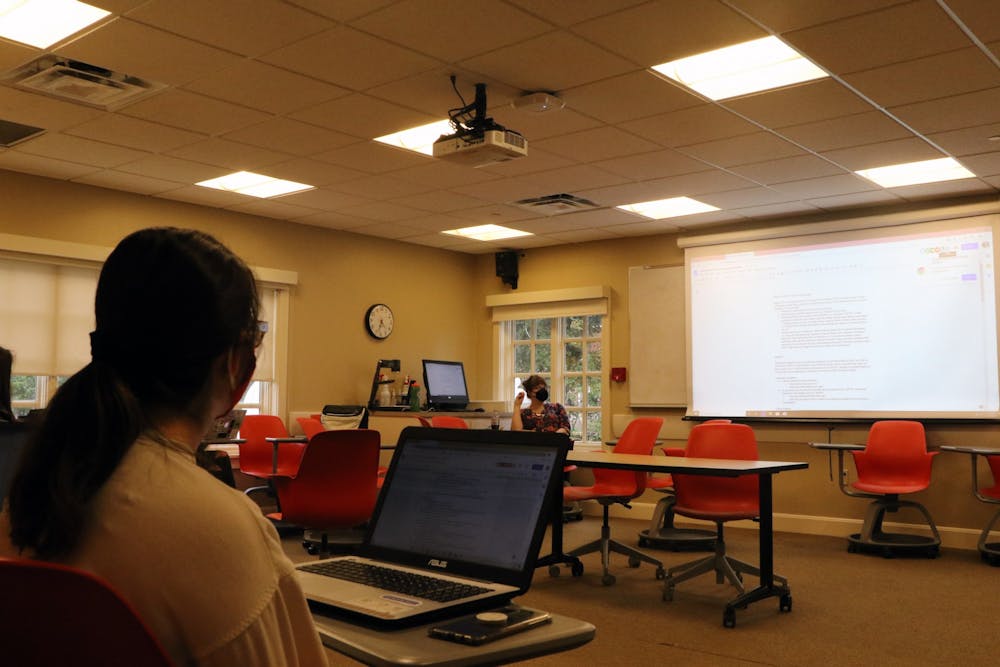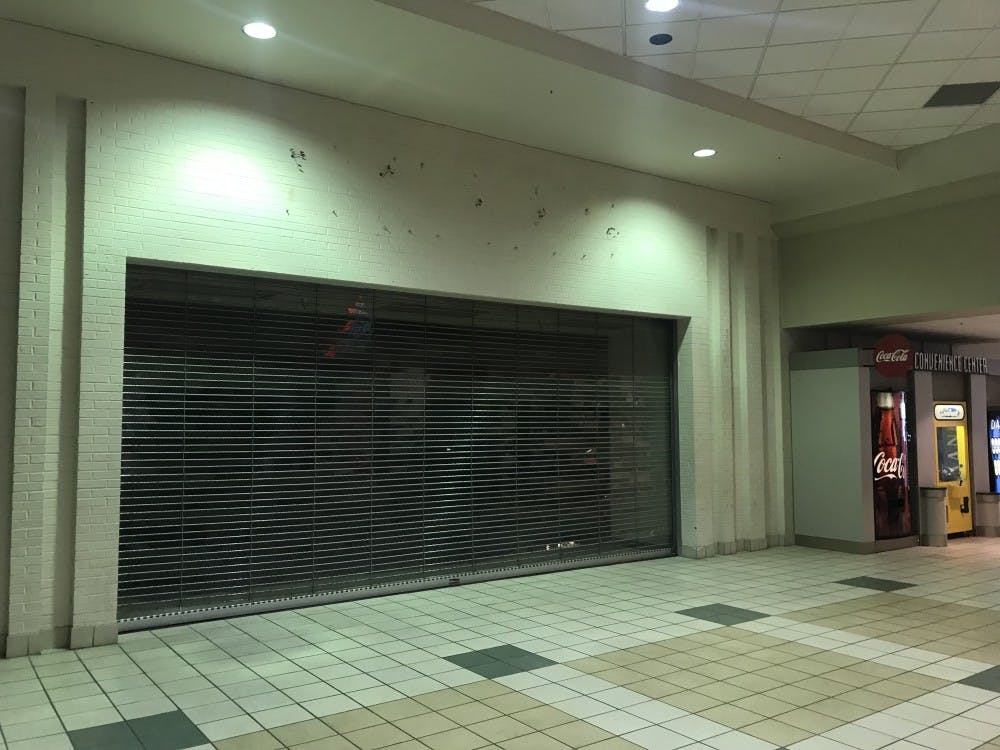Where to watch the LGBTQ+ History Project
The LGBTQ+ History Project is ever-changing and evolving as students begin to submit their work, but there are two websites where viewers can see what has been done so far. Through the project’s website, members and allies of the Muncie LGBTQ+ community can submit and share their stories with the project members. Files from the project can be found on the Ball State Digital Media Repository.
Source: Emily Suzanne Johnson, assistant professor of history
Emma Cieslik, 2021 Ball State biology and public history graduate, has always enjoyed learning about religion and its role throughout history.
“I had originally worked conducting research with the Jewish and Catholic populations in the United States, specifically in the Muncie area,” Cieslik said. “I was really fascinated about how I could combine my interest in local religious populations and religious traditions with gender, sexuality and minority studies.”
From this fascination and interest in religious communities, Cieslik spent a year and a half working with Emily Suzanne Johnson, assistant professor of history, developing an oral history project focused on the LBGTQ+ community in Muncie and what it means to be part of that community in the Midwest.
Johnson started the oral history project before it was brought to students but said training students in oral history was a great way to get them started. Students can register for HONR 390, which is the honors colloquium class where Johnson teaches students about the oral history project.
As students take this class, they are trained to hold interviews for the project, where each one is about an hour or two, and the students ask their sources deeper, personal questions. Johnson said she notices different reactions when students first start conducting interviews, which dig deep into different people's stories.
Student confidence for the project often differs, Johnson said, as some are more timid about interviewing sources while others are more eager to begin telling the stories of the LGBTQ+ community in Muncie.
“Oral history is essentially a way of researching history by interviewing people, and the reason that I love it is because we can gather histories from people whose lives don’t otherwise get recorded,” Johnson said. “With an oral history interview, we basically sit down and say, ‘Where were you born? Tell me about your childhood. What was high school like?’ They last about an hour to two hours, and we basically just want to find out whatever people want to tell us about their story.”
Johnson, a trained historian of sexuality, knew she would be interested in finding more about the LGBTQ+ community once she went to Mark III Tap Room, a Muncie gay bar, in 2018 and learned about the history it brought to the community. Johnson noticed the bar was having a party to celebrate its 50th anniversary.
“I realized that meant that this bar — in Muncie of all places — that this bar here is the oldest continuously operating gay bar in Indiana, and I just needed to know more about this,” Johnson said. “I had done oral history projects before, and I really felt like that was going to be the best way to figure this out.”
Johnson created the Muncie LGBTQ+ History Project, but the students working on the project conducted the interviews and helped her with the research. However, Johnson said it wasn’t intended for the class to work out this way.
“It was not initially conceived as an immersive learning class,” she said. “I kind of came to the idea of it separately, but it is now a regular course offering, and students have done most of the interviewing [for the project], and I appreciate them.”
Cieslik said she learned about this project through a class she was taking in the spring 2020 semester taught by Johnson. The class was a workshop focused on working on the LGBTQ+ history project and allowed Cieslik to complete 10 of the 18 interviews used in the project that semester.
“I really loved the process of giving people the control of their story through an oral history interview,” Cieslik said. “I think, sometimes, it can be a little bit exclusionary or biased if it’s just a historian writing it from an objective point of view versus somebody being empowered and emboldened to tell their own story.”
Cieslik said she knew before she started the project that focusing on the LGBTQ+ community in Muncie would be different than other communities because it’s a “mid-size town” rather than a large city like Indianapolis or Chicago, and she didn’t expect there to be as many historical records about the city’s LGBTQ+ history.
“It’s completely different — it was really cool to break into something that is completely new and original to add to the historical record,” she said.
The project relied on different sources providing Cieslik with names of other potential sources who may be interested in participating, she said. She began the project by talking to people she knew from other projects she completed and people who were members of various churches in Muncie.
“A lot of the interesting part of the project is that it led us to find and discover more of the community than we knew starting out,” she said.
Cieslik worked on this project amid the COVID-19 pandemic and had to conduct her interviews via Zoom, which she said “had some really unusual benefits.” Interviewing her sources over Zoom allowed her to get “raw answers” and talk to people who were once part of the Muncie community but may have moved somewhere else. Cieslik could also record the interviews and get the transcripts afterward.
Cieslik said there are “no bad things” she could ever say about Johnson, and she felt supported throughout the entire project process as she was working to find people to talk with and conduct interviews.
“She’s been a wonderful person to look up to, not only as a female identified person in academia, which I know is rare, especially in the history department,” Cieslik said.
Cieslik and Johnson worked together on the Muncie LGBTQ+ History Project, but at the time, there were about eight or nine other students in the same class working on their own projects.
Now, Johnson is still leading a class for students looking to be part of the LGBTQ+ History Project, which Cieslik said about 15 students are involved in. As of now, Johnson said the class is an Honors College capstone class, but she will begin teaching it in the history department starting in the fall 2022 semester.
“Some students have found out about this project and they are super excited about it and want to be there because they know what the project is,” Johnson said. “Some students come in and they’re like, ‘I don’t know — oral history seemed fun, and I want to do that,’ … and everyone is always happy in the end.”
Contact Maya Wilkins with comments at mrwilkins@bsu.edu or on Twitter @mayawilkinss. Contact Angelica Gonzalez Morales with comments at agonzalezmor@bsu.edu or on Twitter @angelicag_1107.





